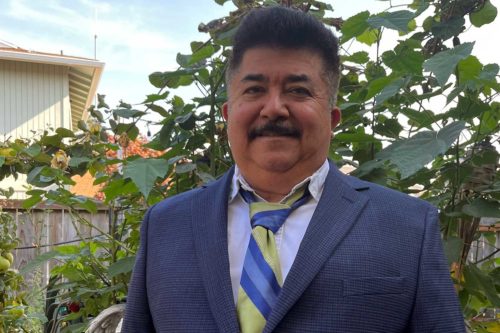
There is a quiet recovery-oriented revolution happening in Lane County and across the state after the announcement of the Measure 110 grants for substance use disorders reduction services last September. In just a few short months, people on the ground have gotten to work optimizing the $29 million awarded to Lane County providers. This is an incredible amount of new funding — statewide, five times more than has ever been allotted to help individuals and families struggling with substance use disorder. Meanwhile, Gov. Tina Kotek has put in new leadership at the Oregon Health Authority and will be pushing to ensure that there are no more delays in future funding.
Now with funding awarded, Measure 110 is doing exactly what the voters called on it to do: Take a public health approach to addiction and fund the services that will help keep individuals and communities safe. Oregon, like many states in the country, is facing an overdose crisis. Unlike other states, thanks to Measure 110, we have the money and the smartest approach to do something about it.
Here’s what that looks like in Lane County: We now have a connected group of 18 providers who will work to give wraparound services to people no matter who they are, what their housing situation is or where they are on their journey to health. Together we will provide screening, intervention, treatment, overdose prevention, housing and employment services in a new county-wide Behavioral Health Resource Network. The right services at the right time in the right way.
Our organization, Centro Latino Americano, serves Latinx and immigrant families in Lane County. We support the community by creating a safe space that fosters leadership, education, wellness and community connection. We are already using Measure 110 dollars to increase staff, services and outreach to people struggling with substance use. Now, we are able to serve more people than ever before, creating a safe space where clients feel welcome and understood because they are receiving compassionate support from someone who understands their heritage and language. This is what people need to build a strong foundation for their recovery. That’s what Measure 110 is helping make possible for even more people in our community.
These are exactly the kinds of services voters wanted when they passed Measure 110. They were — and still are — fed up with the expensive and ineffective approach of locking people up for private possession of small amounts of drugs, because they knew the approach didn’t work. It cost too much, destroyed too many lives and did not make our communities safer.
Voter support for Measure 110 remains steadfast. Not only did the voters largely reject candidates last November who called for repealing the measure, independent polling of over 1,000 representative voters showed that their support continues. Seventy-two percent of voters statewide say drug use and addiction services should be addressed through a public health, not a criminal, approach. Additionally, a majority of Oregonians say that Measure 110 should not be repealed.
Voters know that rolling back Measure 110 will put us right back where we were in 2019, when people of means got the treatment they needed without criminal records, while poor people, Black people and homeless people caught with small amounts for private, personal use faced arrest and prosecution, lost their jobs, their kids and their right to be fully productive members of our community.
Change will not happen overnight. Providers are getting programs up and running, and word will get out that services are finally available. Step by step, conversation by conversation, service by service, we will make a real difference in our communities.
This is a time of great hope and optimism. We are celebrating that 2023 is going to look dramatically different than years past for everyone in Oregon who will finally get the help they need and they deserve.
If you or anyone you love needs help, please call 541-575-3769 to get connected to local assistance.
Basilio Sandoval is the substance use disorders program manager at Centro Latino Americano, a Lane County community organization working to empower Latino families, provide opportunities and generate connections to strengthen the Latino community.